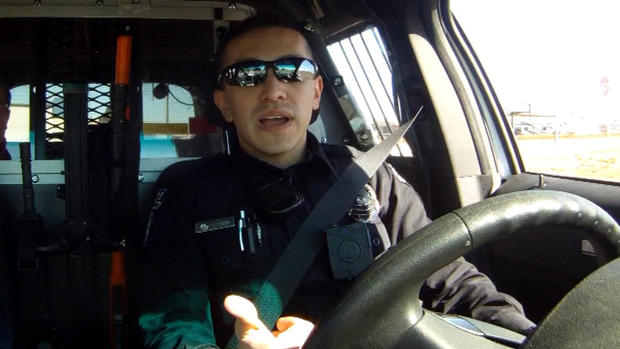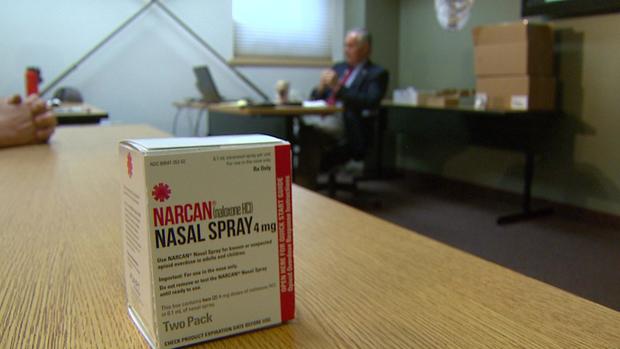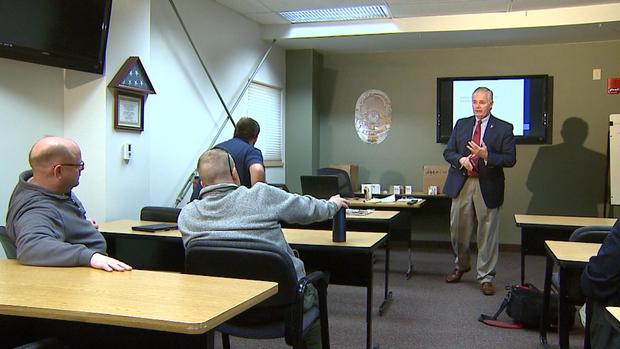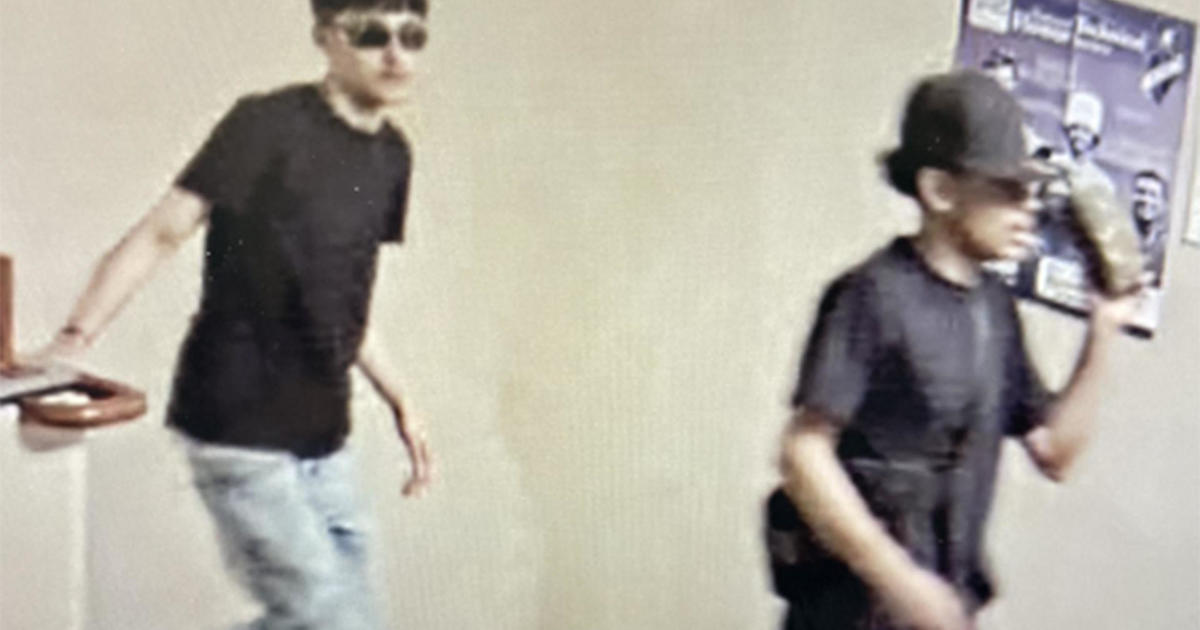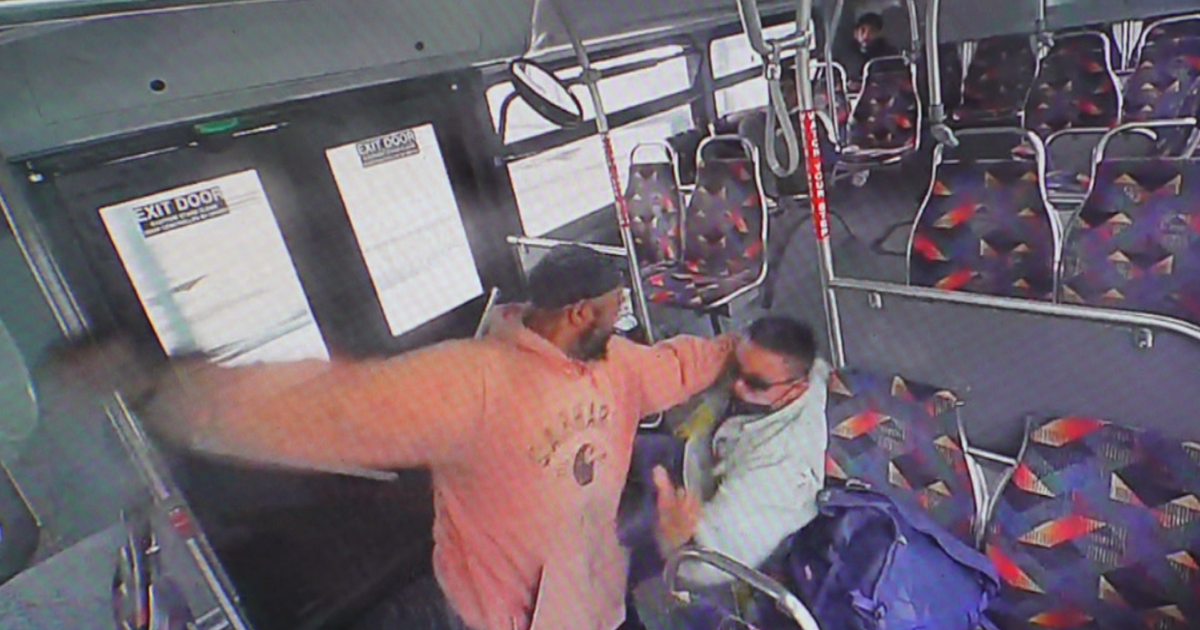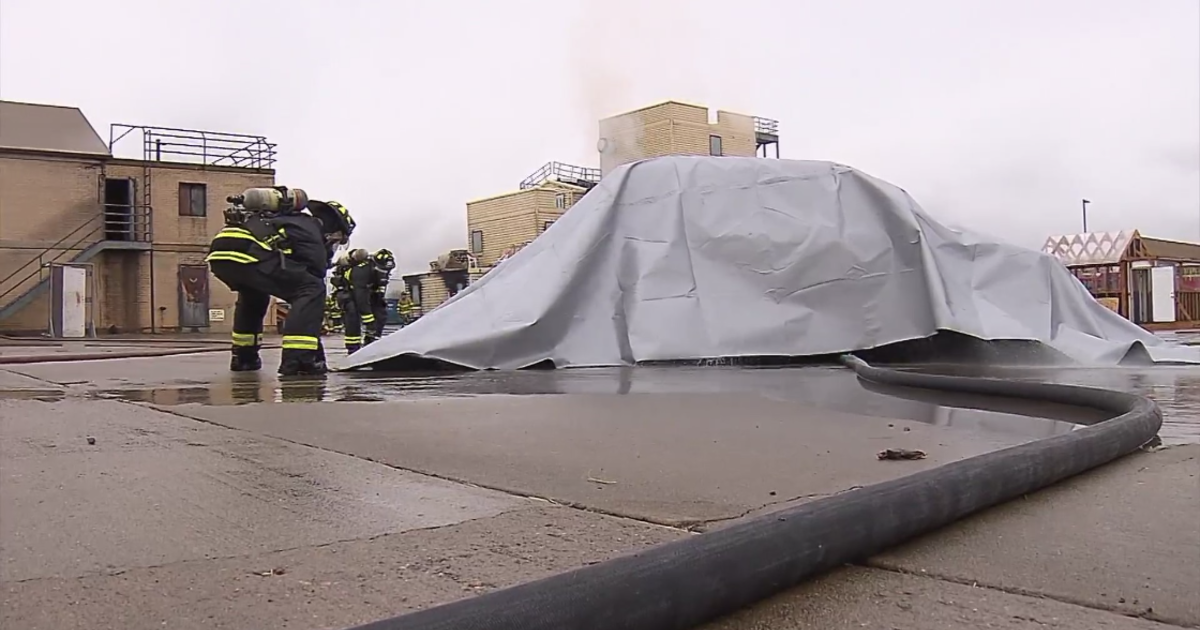More Police Get Trained To Administer Drug That Blocks Opiod Overdoses
EVANS, Colo. (CBS4) - Evans police Officer Luis Garcia recently got an emergency call for a medical assist at a local motel.
Witnesses guided him to a young opioid overdose victim who was lying on the floor of a room and didn't appear to be alive.
"We had no breathing and we had no pulse on her," Garcia said.
With paramedics still three to four minutes away, Garcia pulled out what turned out to be a lifesaver: naloxone, which is sold under the brand name Narcan. It can block the effects of opoids like heroin in cases of overdose.
Thanks to Narcan, Garcia did not lose the young woman overdosing that night.
"We had a pulse and we had her breathing. And we had her completely back to life," he said.
Garcia showed CBS4 how the Narcan is administered as a nasal spray into the nose of a patient.
"And I slowly compress it until until the whole dose has gone into your system. Then I wait 20 to 30 seconds to see how the body reacts to it," he said.
In a typical year, 20,000 people die in the United States from opioid overdoses and half of those are from heroin.

In Weld County, the number of fatal opioid overdoses spiked from nine in 2000, to 46 in 2014.
Evans Police Chief Rick Brandt has been spearheading efforts to get Narcan into the hands of law enforcement departments across the state. A total of 130 departments are now trained in the procedure.
"In our region, the central United States, there's a lot of Mexican black tar heroin coming up. It's very cheap, very easy to get, cheaper than prescription drugs. And people can get it readily on the street," he said.
Lisa Raville with Denver-based Harm Reduction Action Center also trains officers how to use Narcan. She points out that while it is saving lives, many are still being lost because a lack of treatment resources means addicts must wait several days to get help.
"They've had a period of abstinence, self-imposed a lot of times because they know the world wants them to be abstinent, and so what happens is if they do use even just a little bit they can often overdose and we lose a lot of people that way as well," Raville said.
A total of $250,000 from the Colorado Attorney General's Office paid for 2,500 Narcan kits for police and sheriff's departments.
